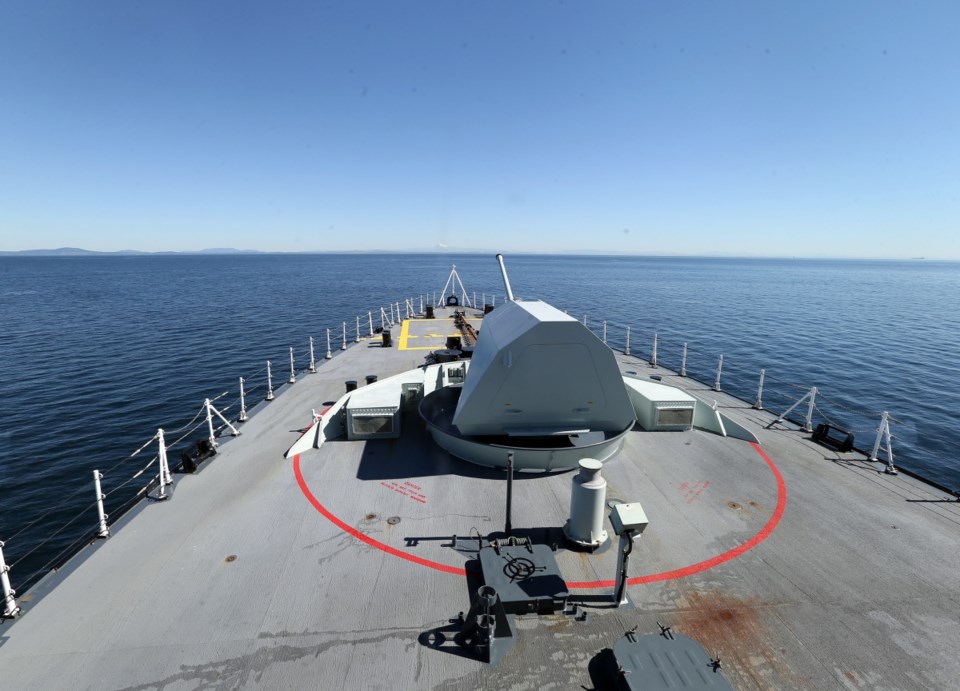Cmdr. Joshua Yanchus, former executive officer of HMCS Calgary out of Canadian Forces Base Esquimalt, is charged under the National Defence Act in connection with events alleged to have occurred on June 25, 2014, during the Hawaii-based Rim of the Pacific (RIMPAC) exercise.
Yanchus continues to work for the navy in Esquimalt, Lieut. Linda Coleman, navy public affairs in Ottawa, said Tuesday. He was promoted to commander in July 2014, before the alleged incidents “were brought to the attention of the chain of command in August 2014,” Coleman said.
Yanchus will be tried under military law and face a court martial.
This is the first charge laid against a member of HMCS Calgary for an incident resulting from last summer’s RIMPAC exercise.
Days after the incident aboard HMCS Calgary, Canada’s top sailor, Vice-Admiral Mark Norman, ordered HMCS Whitehorse home to its base in Esquimalt from a drill off San Diego. At that time, Norman announced a review of all navy policies, which led to restrictions on drinking aboard Canadian navy vessels.
Three HMCS Whitehorse crew members were accused of misconduct. One sailor, charged with drunkenness, was fined and has returned to duty. Another, charged with shoplifting and drunkenness, was found guilty and disciplined. An update on the third case, which involved an allegation of sexual assault, will be released today, a navy spokeswoman said.
During the exercise, HMCS Calgary was under separate command, in a different location than HMCS Whitehorse, and was involved in a separate incident that led to the charges against Yanchus.
“This incident … was certainly another factor when Vice-Admiral Mark Norman referred to other cases leading him to make the decision to change our alcohol policy in December 2014,” Coleman said.
Norman noted that while the actions of HMCS Whitehorse’s crew in July led to a national review and policy changes, the misuse of alcohol had been a growing concern for several years.
“The responsible consumption of alcohol doesn’t lead to misconduct but most misconduct, unfortunately, involves the misuse of alcohol,” he said at the time.
The changes to policy includes restrictions to on-shore leave, a revised code of conduct and the elimination of self-service and vending machines. Until the changes, off-duty sailors could drink at lunch, dinner and after shifts.
It was always an offence to be drunk.
There are a few exceptions to the alcohol restrictions, including permission to have a drink on special occasions, such as Christmas or at an upper-deck barbecue. The policy also includes higher prices for alcohol on board at those events and while the ship is in dock.
The U.S. Navy has a “dry” policy. Other countries, such as New Zealand, permit only moderate alcohol use.



